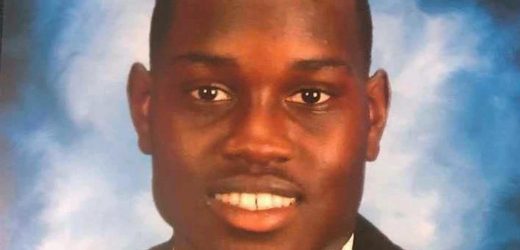Three Georgia men were charged with federal hate crimes Wednesday in the killing of Ahmaud Arbery, a Black man who was pursued and gunned down by two White men as he jogged through a Brunswick neighborhood. The men already faced state murder charges.
Travis McMichael, 35, his father Gregory McMichael, 65, and 51-year-old William “Roddie” Bryan were indicted Wednesday by a federal grand jury in the Southern District of Georgia. They were each charged with one count of interference with rights and one count of attempted kidnapping, according to a Department of Justice press release. Travis and Gregory McMichael were charged with one count of using, carrying and brandishing a firearm during a crime of violence. Travis McMichael was also charged with discharging a firearm.
The indictment alleges the men used force and threats of force to intimidate and interfere with Arbery’s right to use a public street because of his race. It alleges Travis and Gregory Michael armed themselves and chased Arbery in a truck while yelling at him and threatening him with firearms, and it says Bryan joined the chase. All three cut off Arbery’s route in their vehicles, the indictment alleges.
In addition to the hate crime charges, the indictment alleges all three defendants attempted to unlawfully seize and confine Arbery in an attempt to restrict his free movement and detain him against his will.
All three defendants were already charged in state court with malice murder, felony murder, aggravated assault, false imprisonment and criminal attempt to commit a felony. At a hearing in the local court case June, the lead Georgia Bureau of Investigation agent testified that Travis McMichael said a racial slur as Arbery lay dying.
Attorneys for the McMichaels have argued the father and son believed Arbery was the burglary suspect who had been stealing items from the neighborhood in the months prior to the shooting, leaving the community “on edge.”
At the time of Arbery’s killing, Georgia was one of a handful of states with no hate crime laws, which generally allow for harsher sentencing for perpetrators of crimes ruled by a court to be bias-motivated. Arbery’s death galvanized advocates and led to the passage of a hate crime bill in the state last year, but the new law is not retroactive and cannot be applied to the case.
The McMichaels and Bryan were charged with murder months after the Arbery was killed, after a series of recusals by local prosecutors and after disturbing cell phone video of the fatal encounter spurred a national outcry.
Source: Read Full Article



